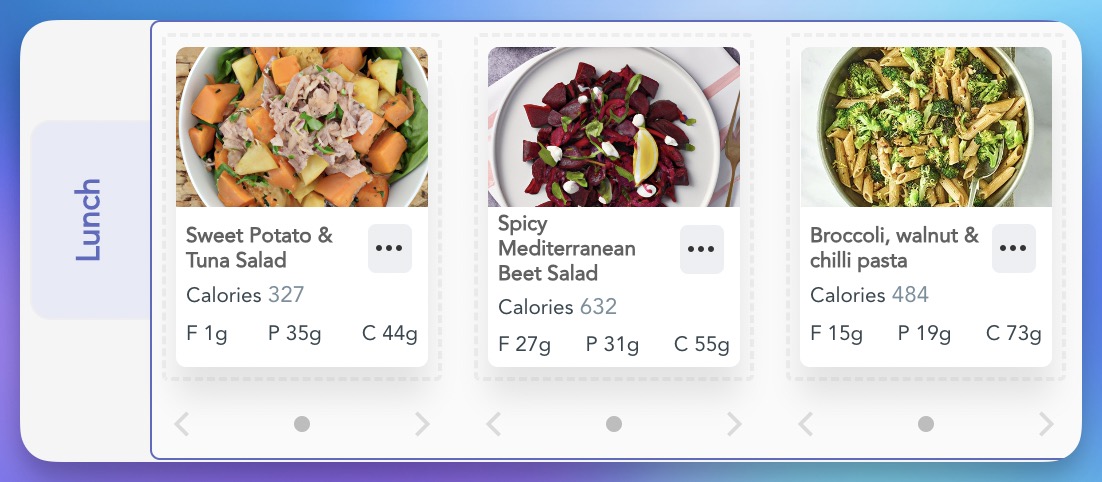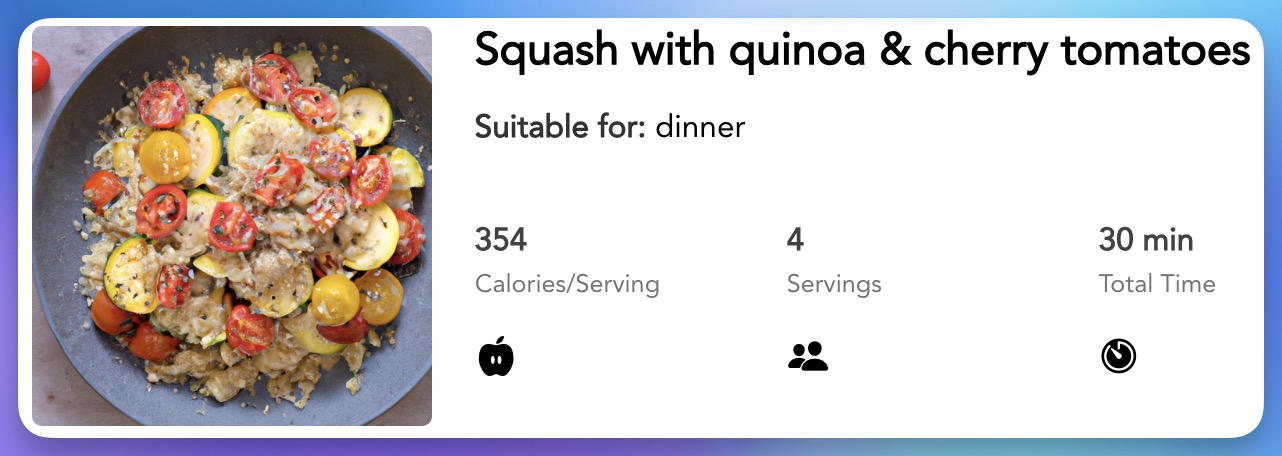Carb Cycling Meal Plan
In the ever-evolving landscape of dietary strategies, carb cycling has emerged as a dynamic approach to fueling the body for optimal performance and health. As a nutrition professional, you understand that clients have diverse needs, and offering a variety of dietary options is key to supporting their unique journeys. Carb cycling, a dynamic nutritional approach, is one such strategy that offers versatility in achieving various health and fitness objectives. In this article, we delve into the intricacies of the Carb Cycling 2000 kCal Plan, exploring what it is, its potential benefits, and who it may be suitable for.
Understanding Carb Cycling
Carb cycling is a dietary regimen that alternates between days of higher carbohydrate intake and days of lower carbohydrate consumption. It's a cyclical approach to nutrition that aims to manipulate carbohydrate availability to achieve specific outcomes, such as improved athletic performance, weight management, or metabolic flexibility. However, it's important to stress that carb cycling isn't suitable for everyone and should be undertaken under the supervision of a healthcare provider or a qualified health coach.
Benefits of Carb Cycling
-
1. Enhanced Metabolic Flexibility: Carb cycling encourages the body to adapt to different fuel sources. This flexibility can promote improved metabolic function and insulin sensitivity.
-
2. Weight Management: One of the primary goals of carb cycling is to optimize fat loss while preserving lean muscle mass. The strategic variation in carbohydrate intake may help the body utilize fat as a fuel source during low-carb days.
-
3. Exercise Performance: Athletes and fitness enthusiasts may benefit from carb cycling by strategically timing high-carb days to coincide with intense workouts, potentially improving energy and endurance.
-
4. Blood Sugar Control: Some individuals with insulin resistance or diabetes may find carb cycling helpful in stabilizing blood sugar levels when done under professional guidance.
- 5. Flexibility: Carb cycling offers flexibility and variety in dietary choices, reducing the monotony often associated with strict diets. Clients can enjoy both higher-carb and lower-carb foods in moderation.
Key Features of the Carb Cycling 2000 kCal Plan
The Carb Cycling 2000 kCal Plan is a dietary strategy that strategically alternates carbohydrate intake to align with specific fitness or health goals. It's important to delve deeper into how this plan operates to provide your clients with a comprehensive understanding.
1. High Carb Days: These days involve a higher intake of carbohydrates, typically coinciding with more intense physical activity or training sessions. The additional carbohydrates provide a readily available energy source, supporting optimal workout performance.
2. Low Carb Days: On low-carb days, clients reduce their carbohydrate intake, often emphasizing protein and healthy fats. This reduction in carbs encourages the body to tap into stored fat for energy, potentially aiding in fat loss.
3. Tailored Cycling: The frequency of high and low-carb days can vary based on individual goals and activity levels. Some clients may benefit from a weekly cycle, while others may opt for a more complex approach, cycling carbs over several days.
4. Carbohydrate Quality: Emphasizing nutrient-dense, complex carbohydrates on high-carb days is crucial. Whole grains, fruits, and vegetables are excellent choices. On low-carb days, clients should focus on lean proteins, healthy fats, and non-starchy vegetables.
5. Caloric Consistency: Maintaining consistent caloric intake throughout the carb cycling plan is essential for overall energy balance and achieving specific goals. Calorie tracking can help clients stay on target.
6. Water and Electrolytes: Hydration becomes especially critical during carb cycling, as carbohydrate intake can influence fluid balance. Encourage clients to monitor their water intake and ensure adequate electrolyte consumption.
Who Should Avoid Carb Cycling
It's crucial to recognize that carb cycling is not suitable for everyone. Always consider your clients' medical history and individual circumstances. Carb cycling may not be suitable for everyone, especially those with certain medical conditions or specific dietary restrictions. Clients who fall into the following categories should avoid carb cycling:
-
- Pregnant or Breastfeeding: Women who are pregnant or breastfeeding require stable nutrient intake for the health of themselves and their babies.
-
- Underweight: Individuals who are underweight may not benefit from the calorie fluctuations associated with carb cycling.
-
- History of Eating Disorders: Those with a history of eating disorders should avoid carb cycling, as it may exacerbate unhealthy relationships with food.
-
- Adrenal Issues: Carb cycling may not be appropriate for individuals with adrenal issues, as it can impact stress hormone levels.
Navigating Nutritional Peaks and Valleys
The Carb Cycling 2000 kCal Plan stands as a dynamic approach to nutrition, allowing clients to harness the benefits of both high and low-carbohydrate days. As nutrition professionals, you have the expertise to guide clients through this nuanced dietary strategy, ensuring it aligns with their goals and health status.
However, it's essential to exercise caution and avoid this plan if clients fall into specific categories, such as pregnancy, breastfeeding, underweight status, eating disorders, or adrenal issues. Always prioritize client safety and well-being.
Carb cycling isn't a one-size-fits-all solution, and it should be implemented under supervision, especially when tailored to individual needs. By incorporating this approach into your toolkit, you empower clients to explore a flexible and goal-focused approach to nutrition, enhancing their journey toward improved health and fitness.
People are also reading...
🧠 Brain Health Meal Plan
🥬 Clean Keto Diet Meal Plan
🥛 Dairy Free Meal Plan
🫒 DASH Diet Meal Plan
🍞 Gluten Free Diet Meal Plan
🥗 Gout Diet Meal Plan
Ready to level-up?
Create meal plans 10x faster, follow up with your clients through our mobile app, and never struggle with meal planning or recipe management again.

